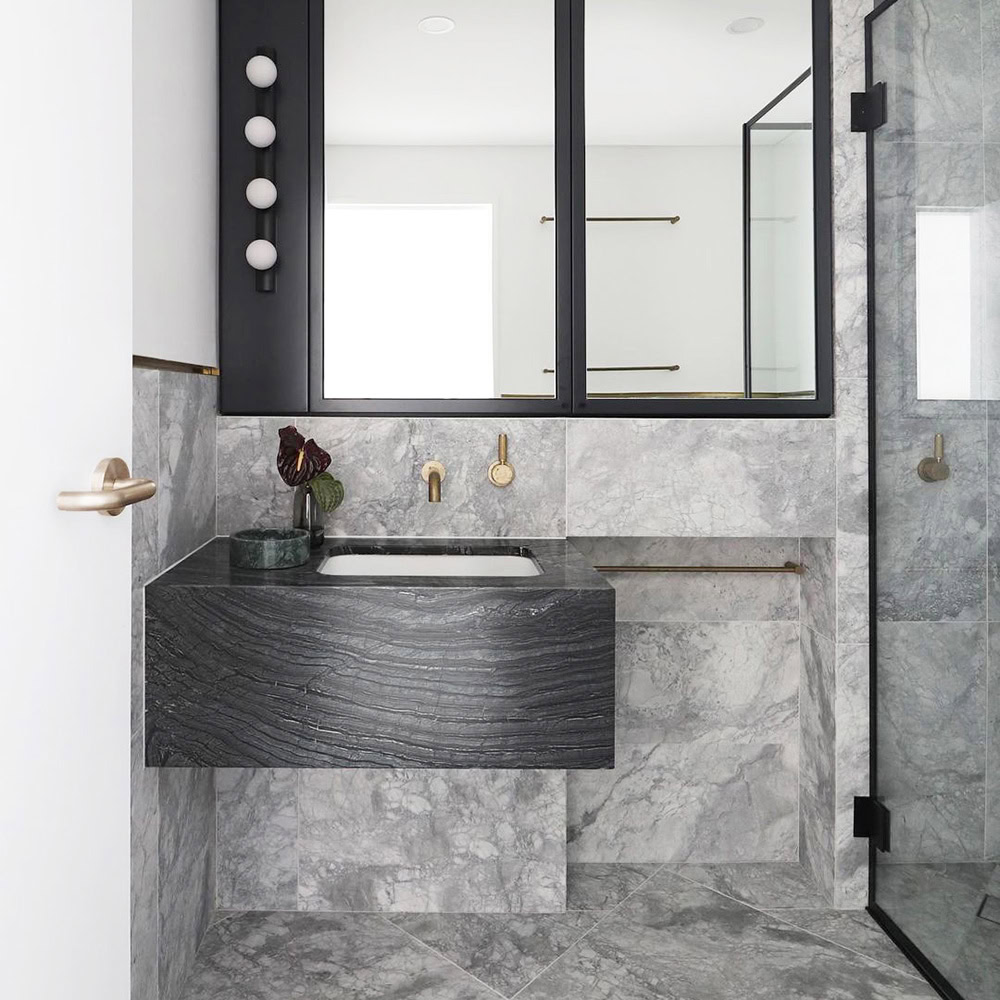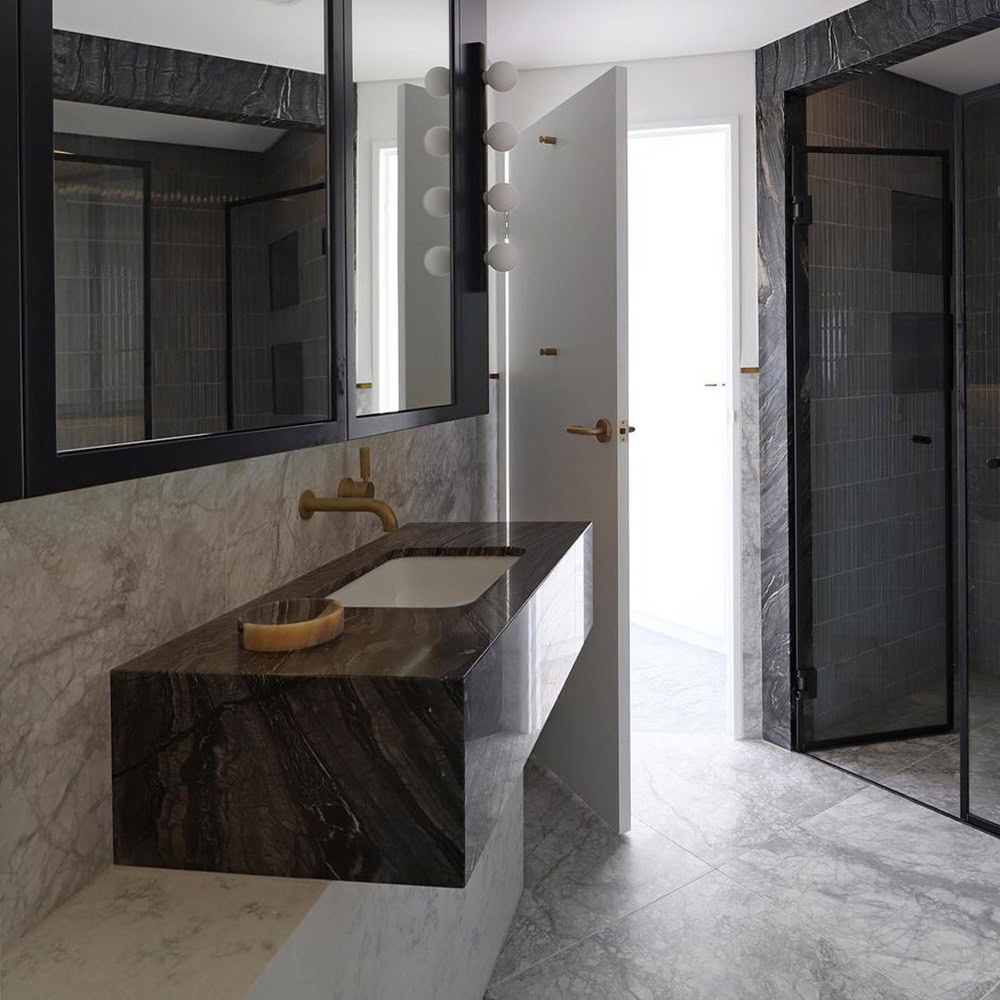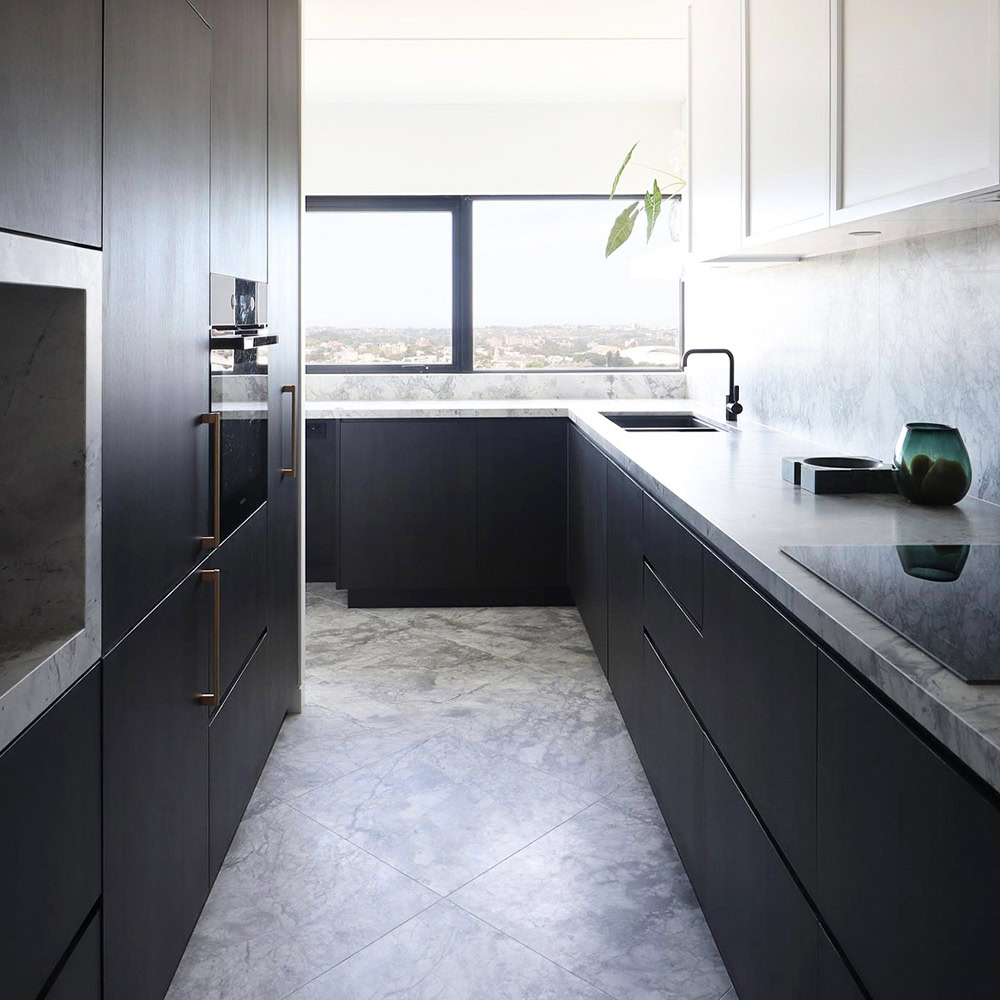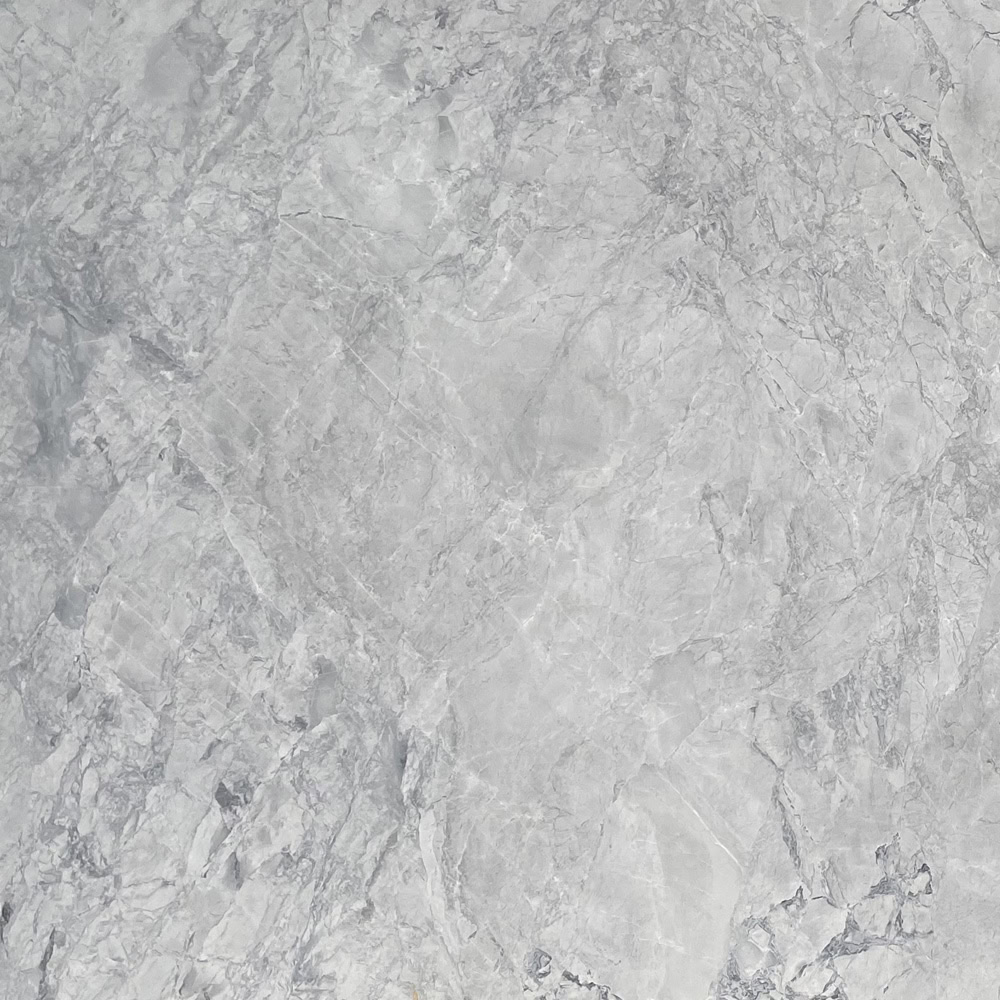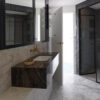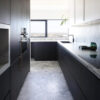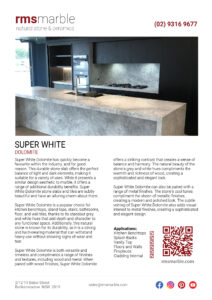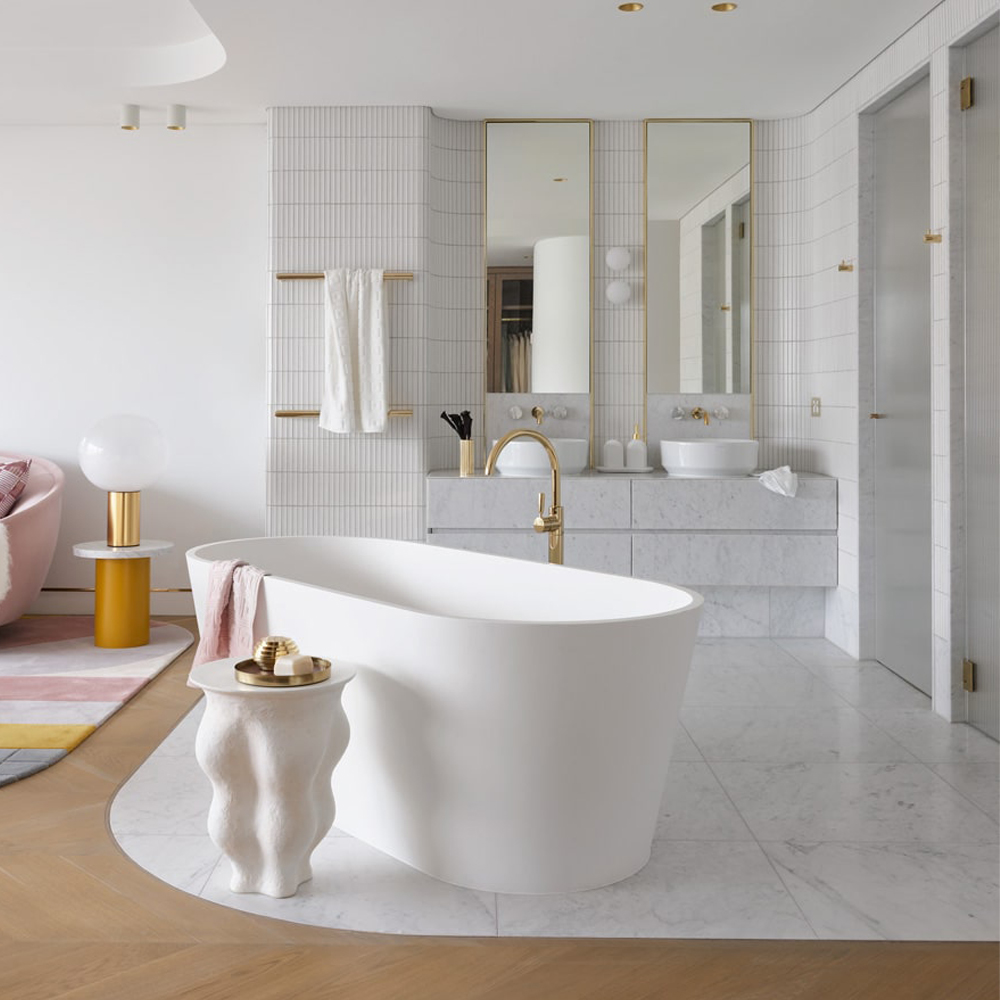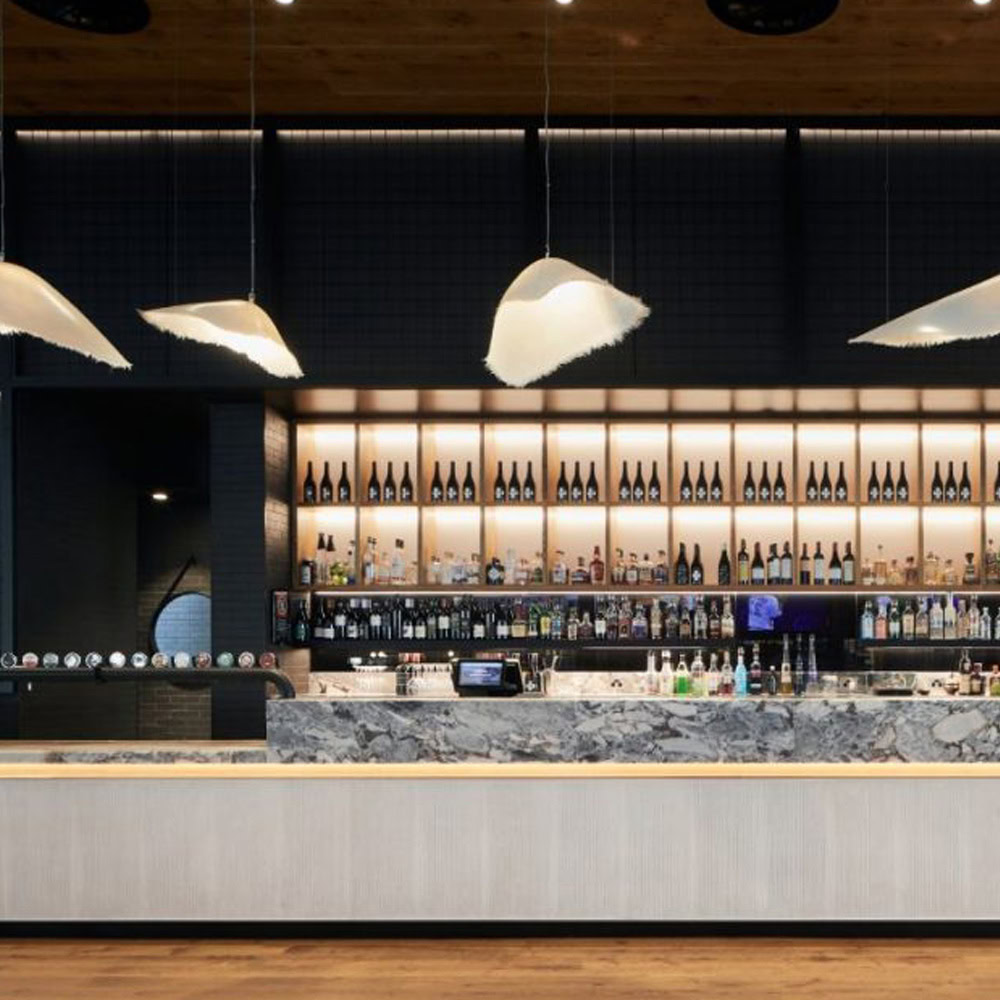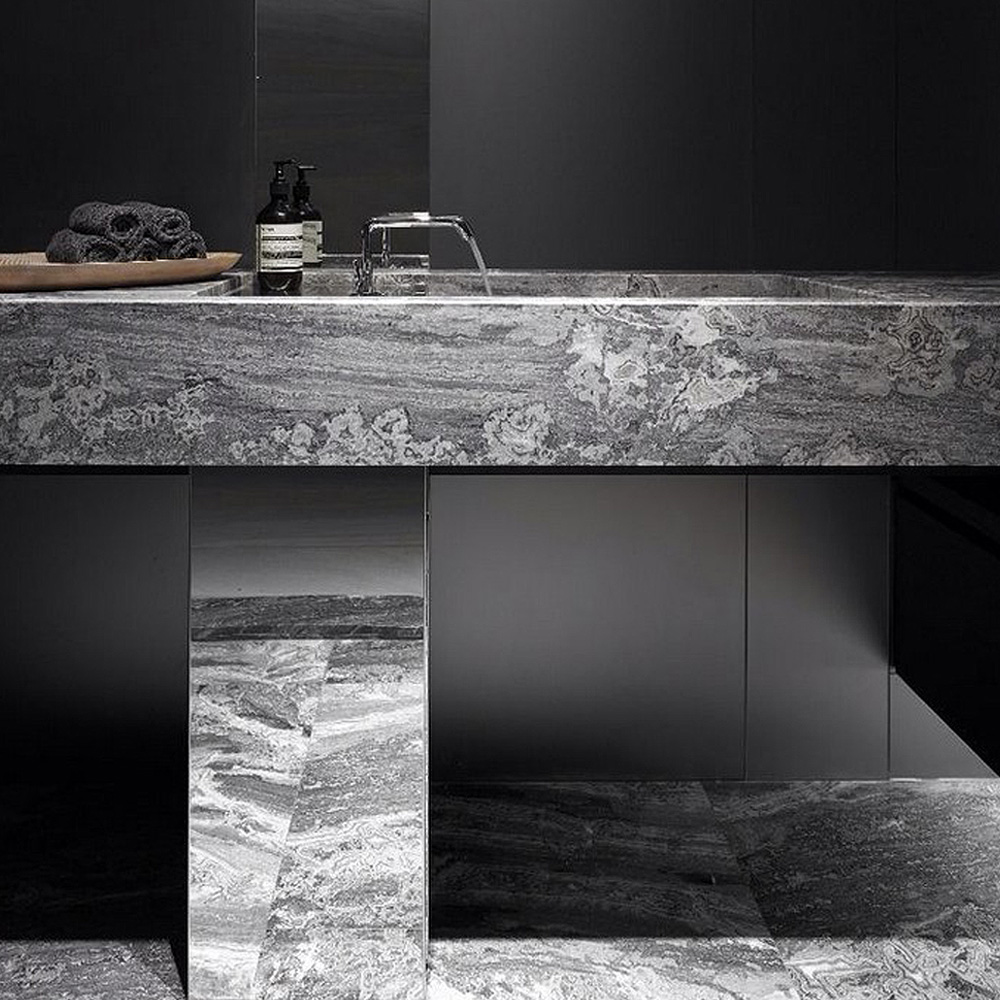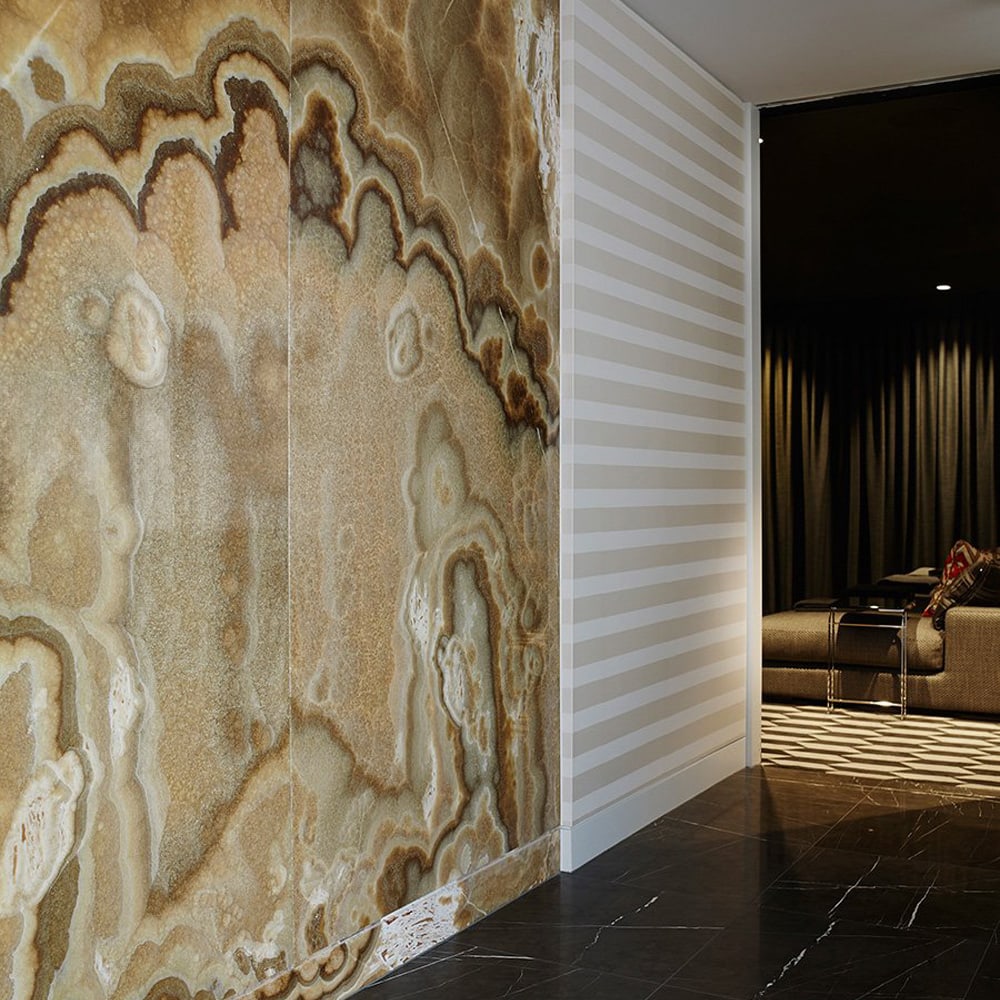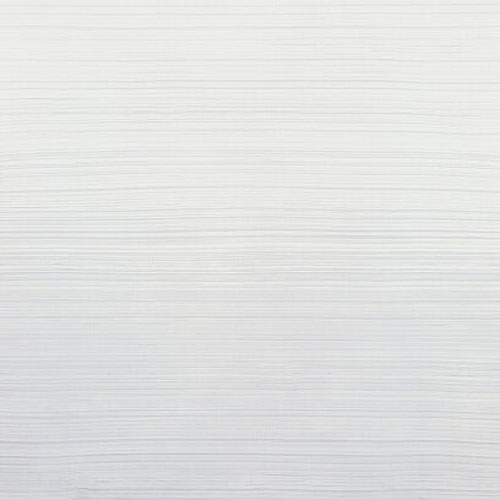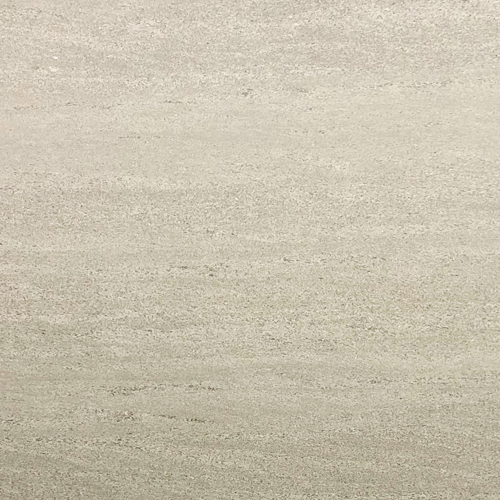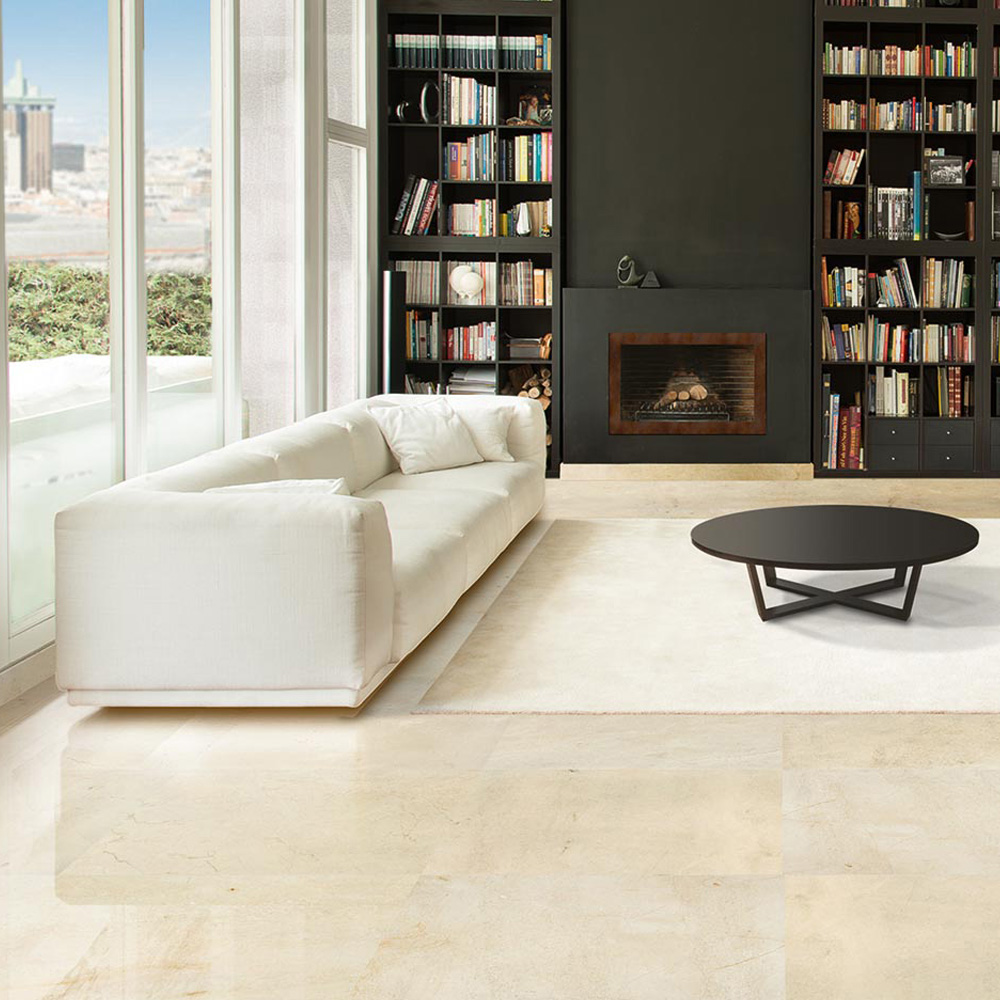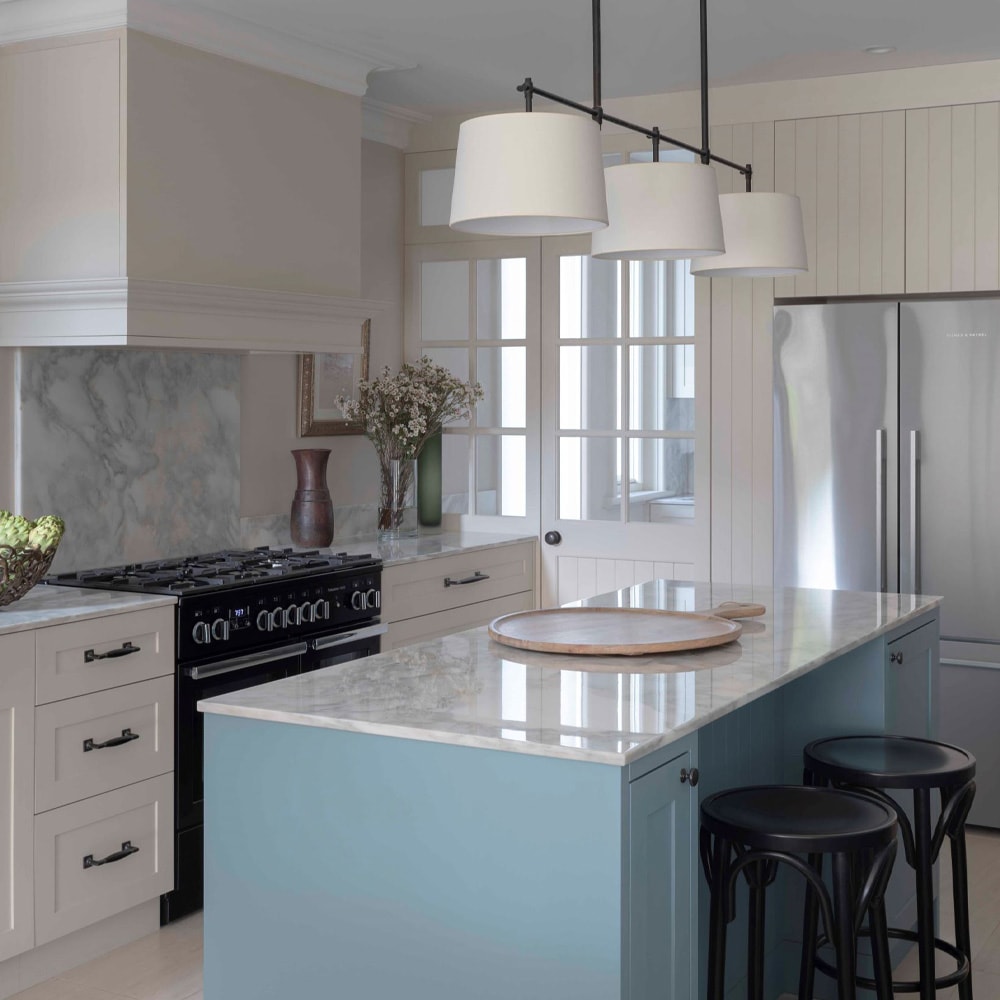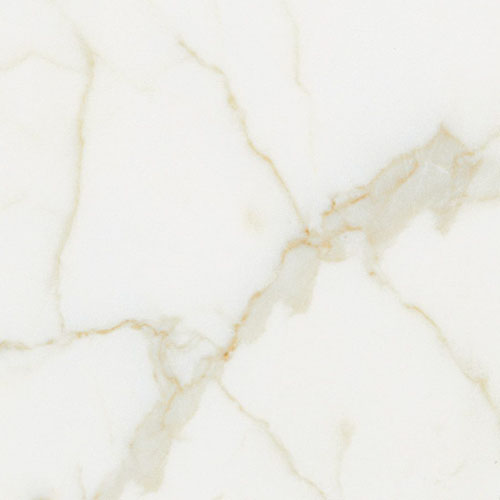Benefits of a Super White Marble Kitchen Benchtops
1. Aesthetic Appeal
Super White Dolomite isn’t only stunning, it is also extremely trendy at the moment. Light, calming, grey tones are popular and bring a tranquil, serene energy into your kitchen. The veining in super white is striking, yet not too busy. You can select your Super White kitchen benchtop in a honed or polished finish. Introduce luxury into your residential development or impress your guests with striking marble tiles throughout your business. Complete your project by pairing your natural stone Super White kitchen benchtop with natural stone tiles.
Super White Kitchen Benchtop’s are available in various “looks” or “grades”. There is a variety called Super White Calacatta that has a different tonality and pattern and ends up sitting at a higher price point.
2. Durability
Super White is a dolomite. This durable natural stone is suitable for a variety of uses and has the perfect balance of light and dark elements. While it presents a similar design aesthetic to marble, it offers a range of additional durability benefits. Super White is subtly beautiful and has an alluring charm about it. A Super White Kitchen Benchtop is:
- Less porous
- Stronger
- Less prone to staining
- More resistant to heat
than some other marble kitchen benchtops.
3. Super White Kitchen Benchtop’s Ease of Maintenance
This material is extremely easy to keep clean, but it is important to seal the stone before using your new kitchen benchtop. As long as you seal your stone every few years and clean regularly, you will not have any issues with this material.
4. Natural Stone is a Timeless Investment for your Kitchen Benchtop
Europeans have been using natural stone for thousands of years. Endless numbers of historical landmarks with marble still look absolutely breathtaking. Having a natural product has never been out of style, unlike stone replacements like porcelain or man-made quartz that have varying rates of popularity.
Frequently Asked Questions About Super White Dolomite Tiles & Slabs
How Does Super White Differ from Marble?
All stones have a long history back through time. From the location on the earth in ancient times when the land may have been in totally different places than today, through to the mix of minerals in the area, to the type of water and geologic activity of the region – these elements combine to make each stone different and special. We use stone for many different applications, from industrial manufacture, road building, structural components and as decorative items. Super White has formed in a unique way to produce the material we use today and it is the historic mix of influences that makes this stone unique. Super white is often called a Dolomite which means it is made from a large proportion of this mineral (Dolomite) along with quartz and the other minerals.
Super White can broadly be classified in the same category as marbles however the common idea of marble that people envisage are the white and heavily veined marbles seen in hotels and luxury homes. Super White is a little different, with a high proportion of hard minerals and quartz this material is harder to stain and easier to keep clean than many commonly used marbles. Super White will resist scratching, take more heat and show less wear and tear than other common marbles.
What Finishes Suits Super White Dolomite?
Super White can be used on countertops, floors, walls and even outside. In the house Super White is supplied in either honed or polished finish but outside it can be supplied Sandblasted or flamed to give extra grip.
Where Does Super White Dolomite come from?
Super White is quarried in Brazil. Blocks of quarried stone are shipped to companies around the world who cut and process the stone blocks into different thicknesses and sizes depending on what is ordered.
Which is Harder – Granite or Super White?
There is a standard Hardness Test used when finding out how hard a stone is. Each type of stone may vary from batch to batch so different types of stone are usually grouped together within a range. Granites sit in a range between 6-8 on the Moh’s Hardness Scale while Super White sits at around 3.5 on this scale. This means Granite is harder than Super White.

